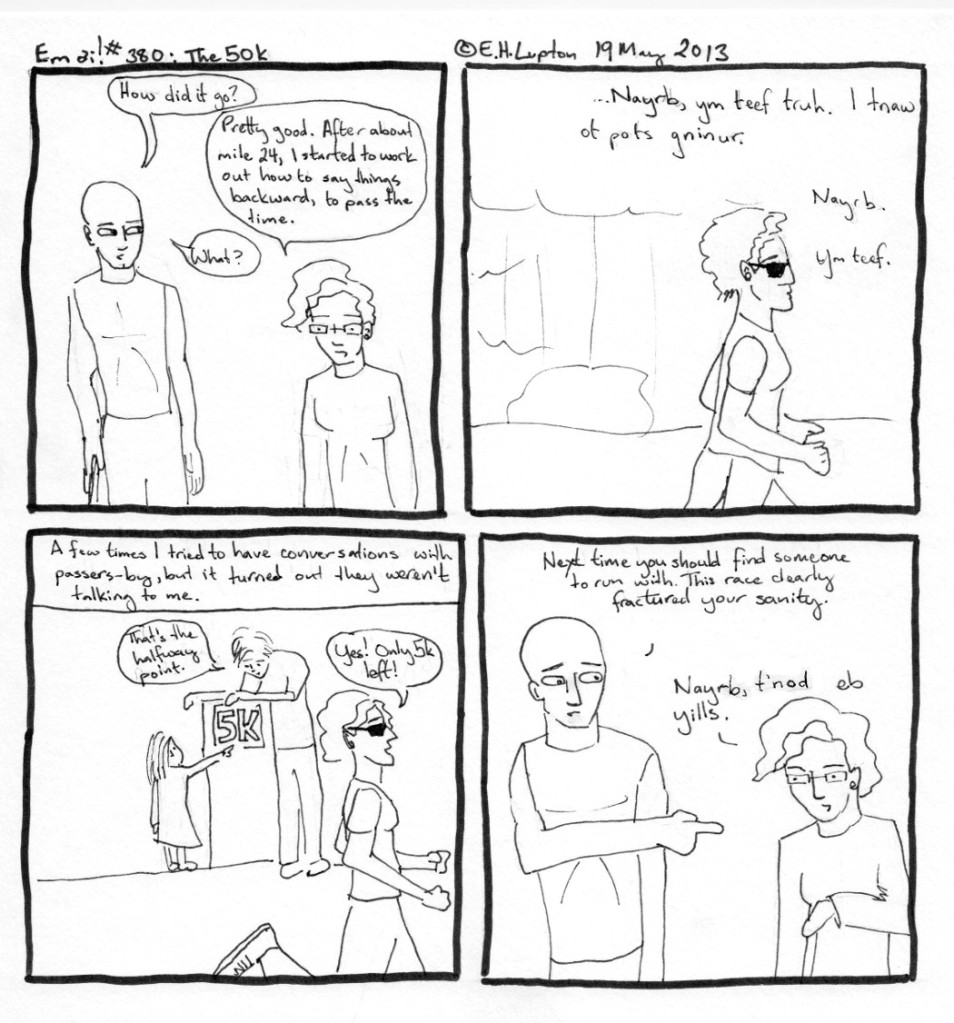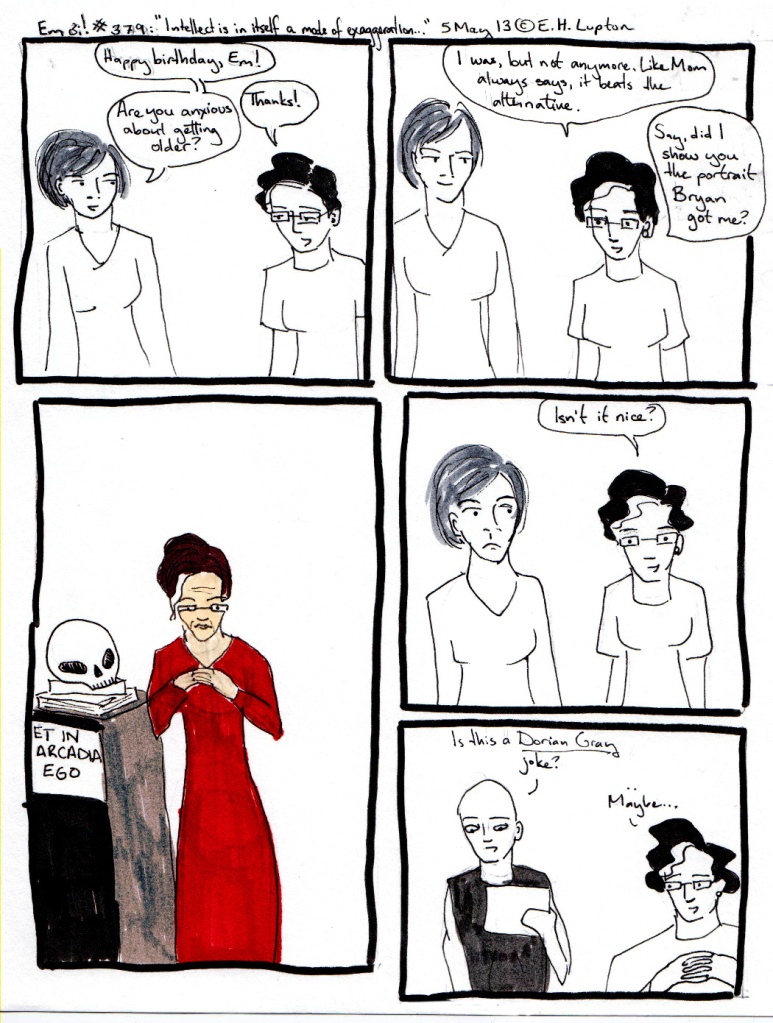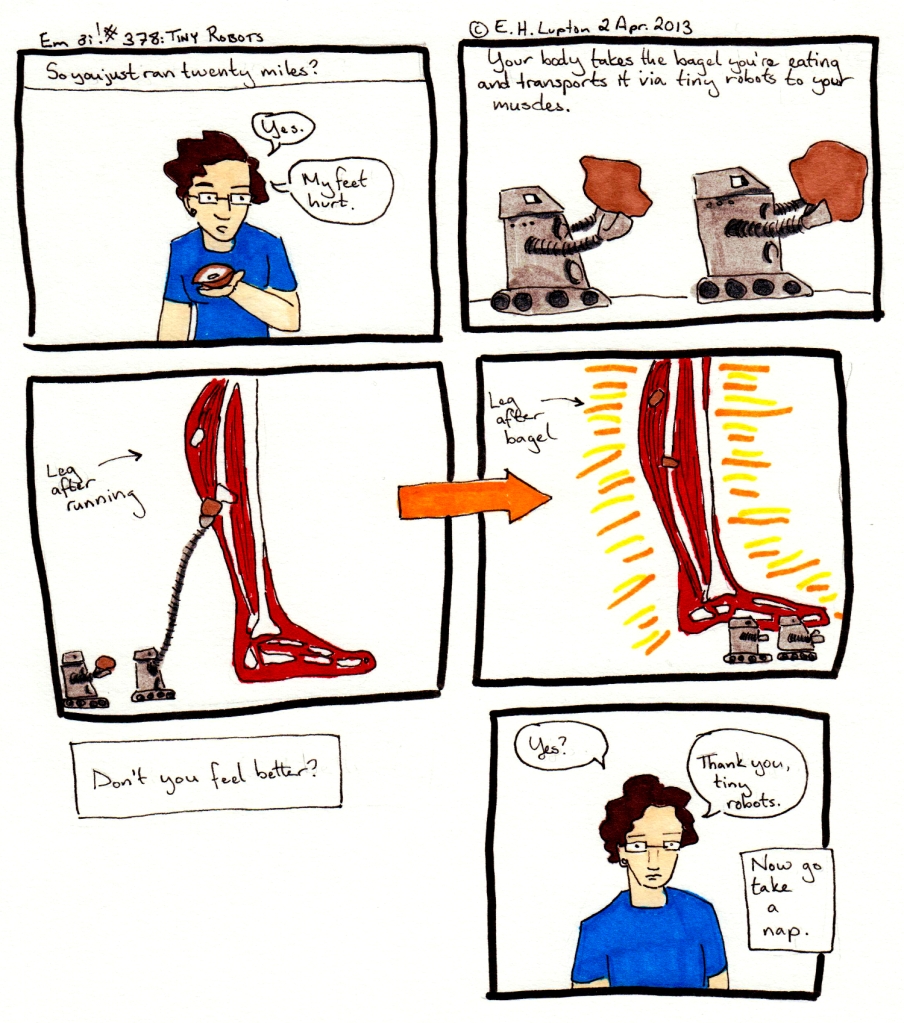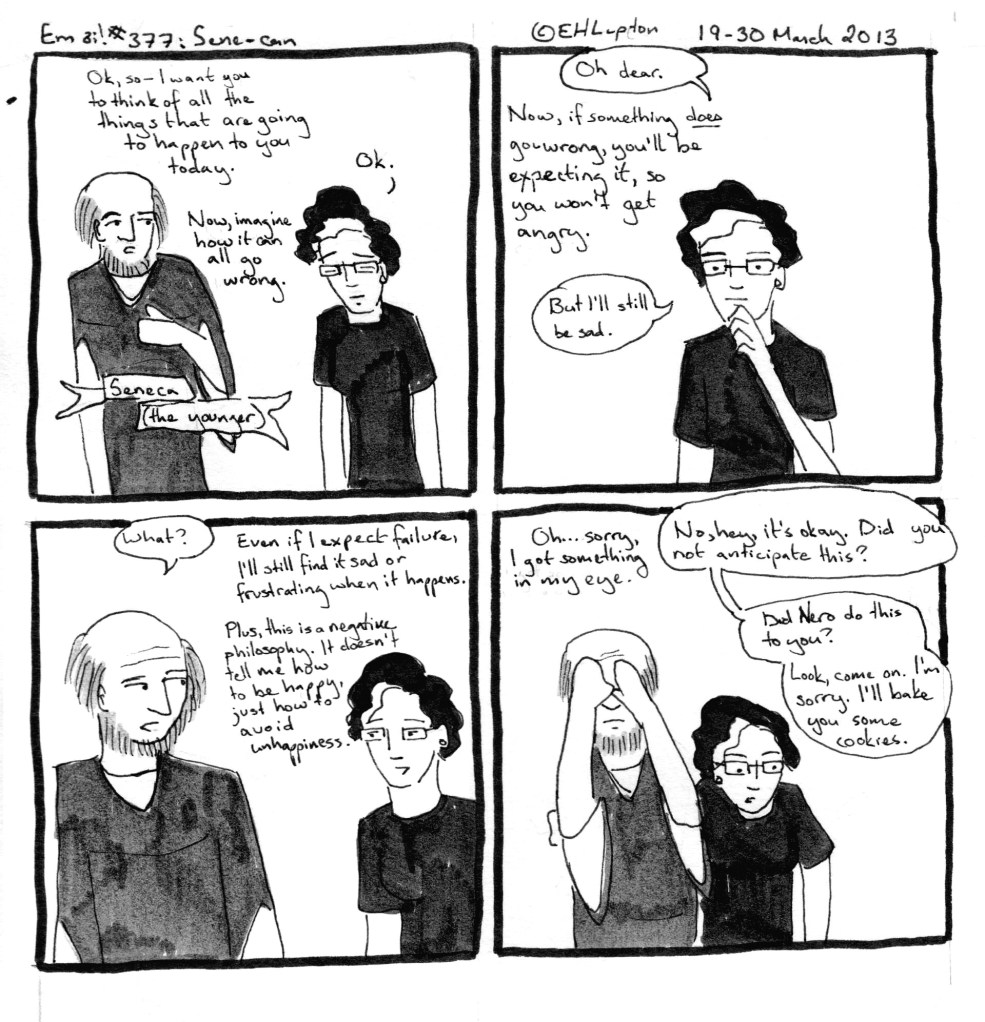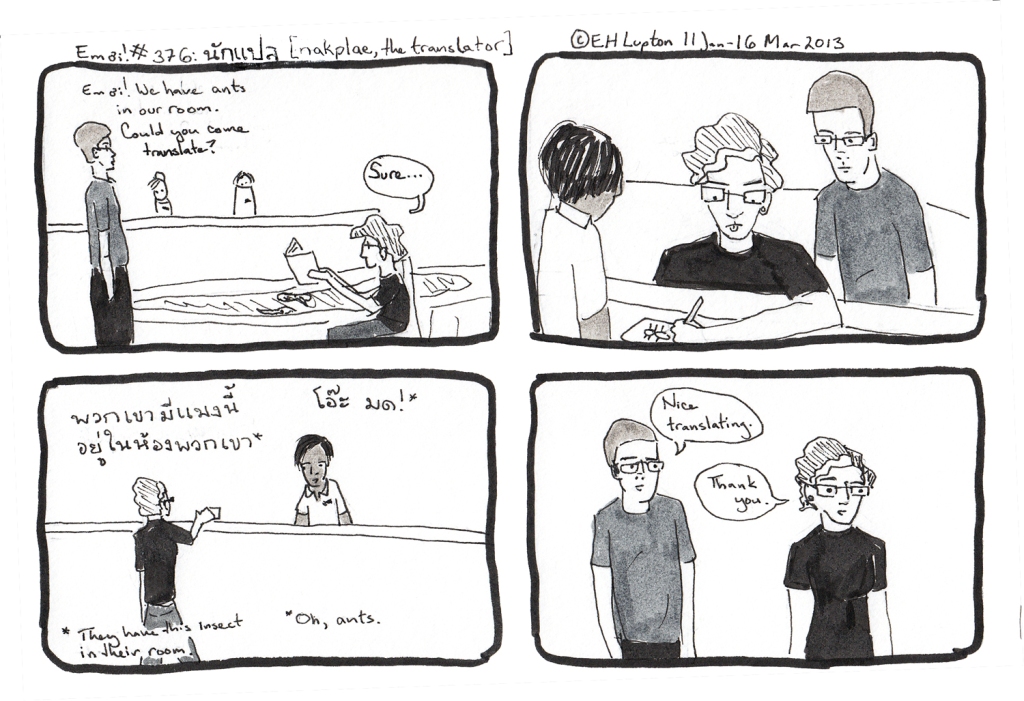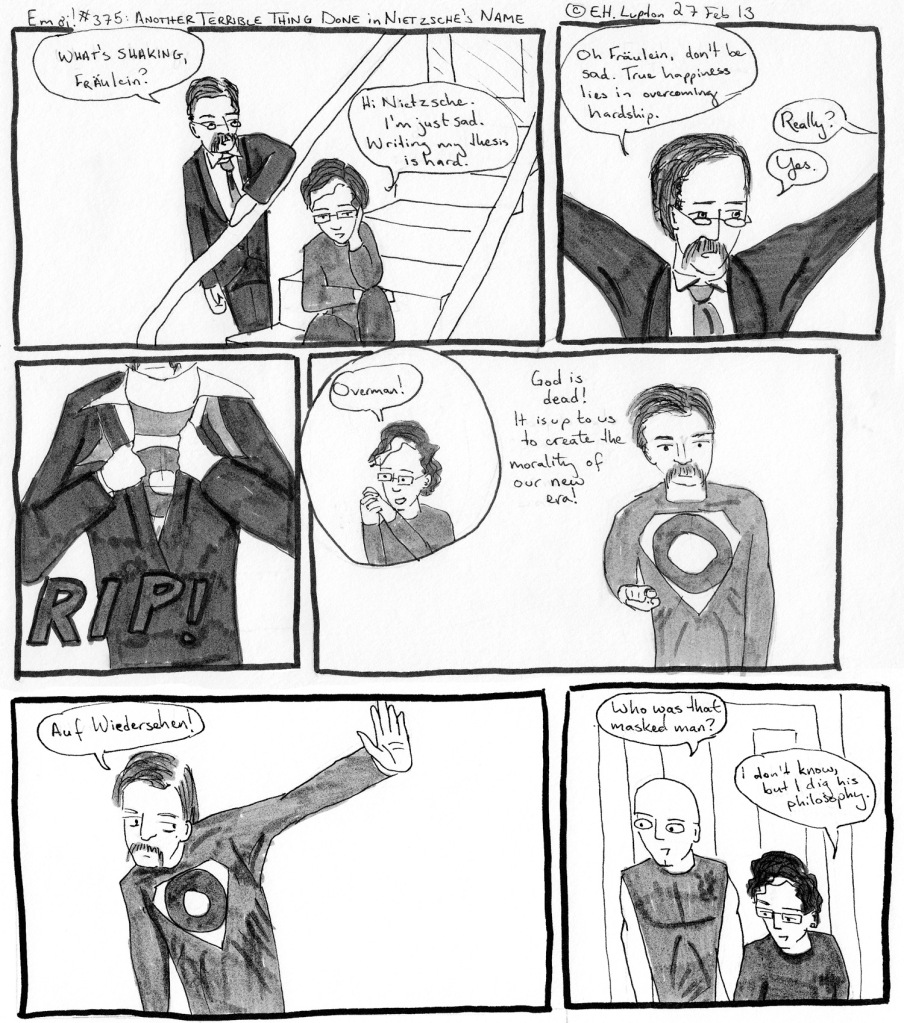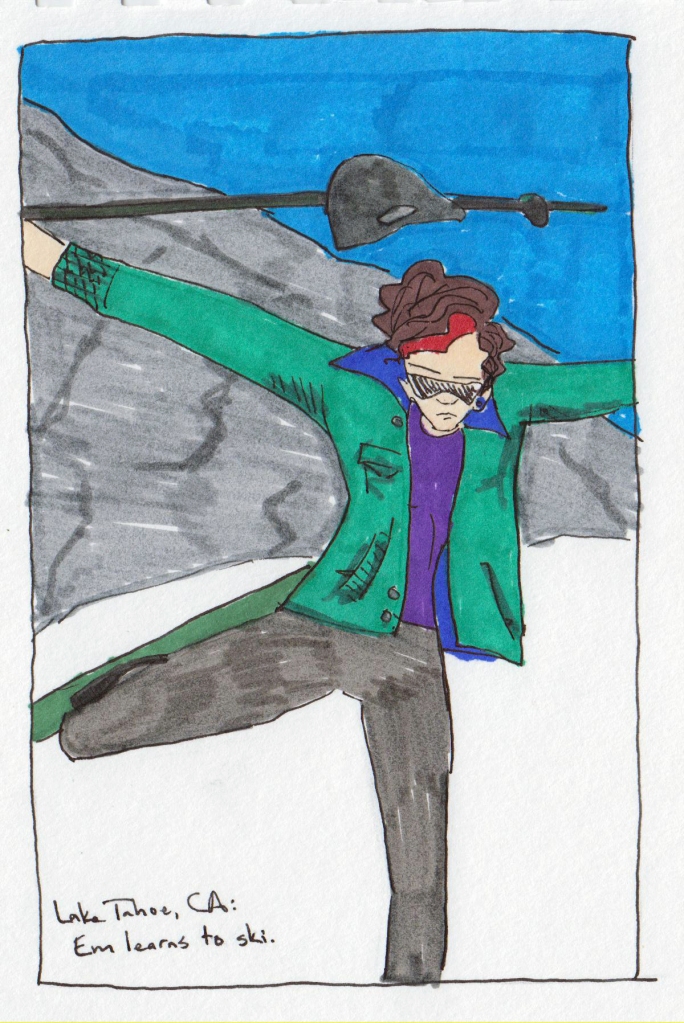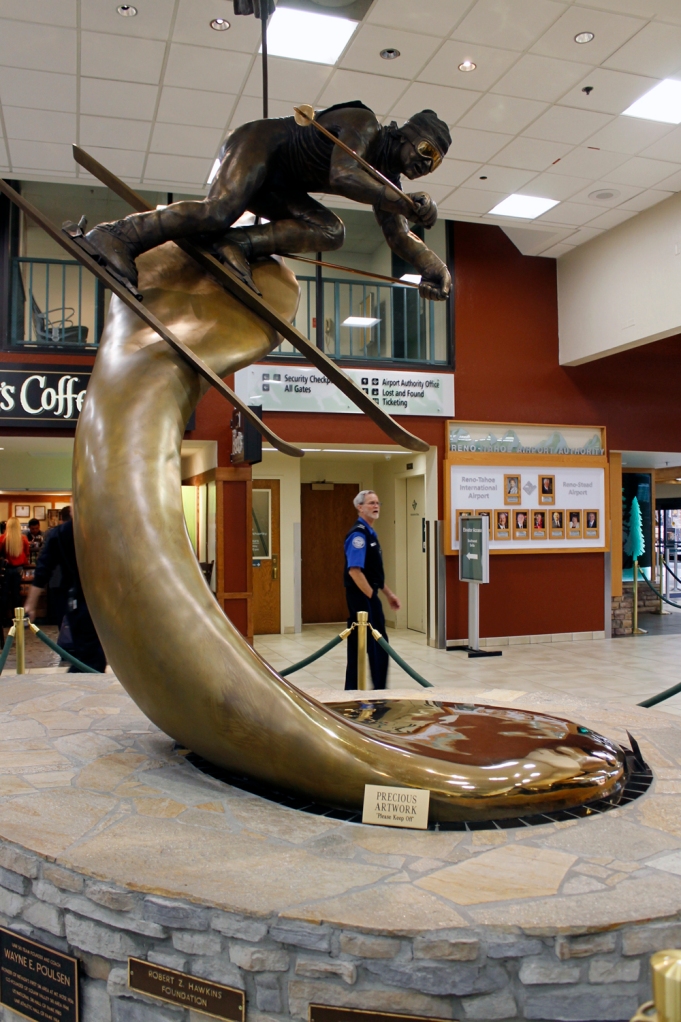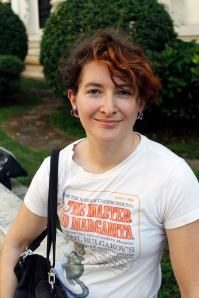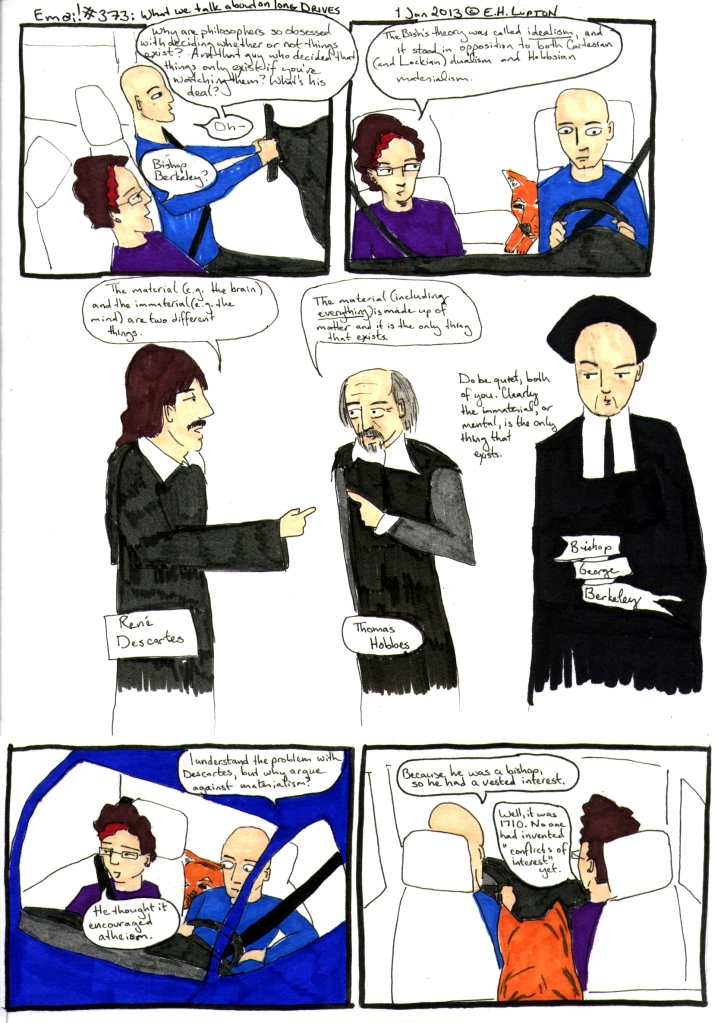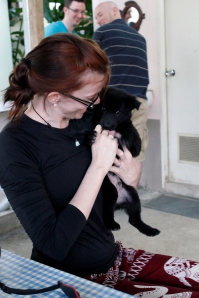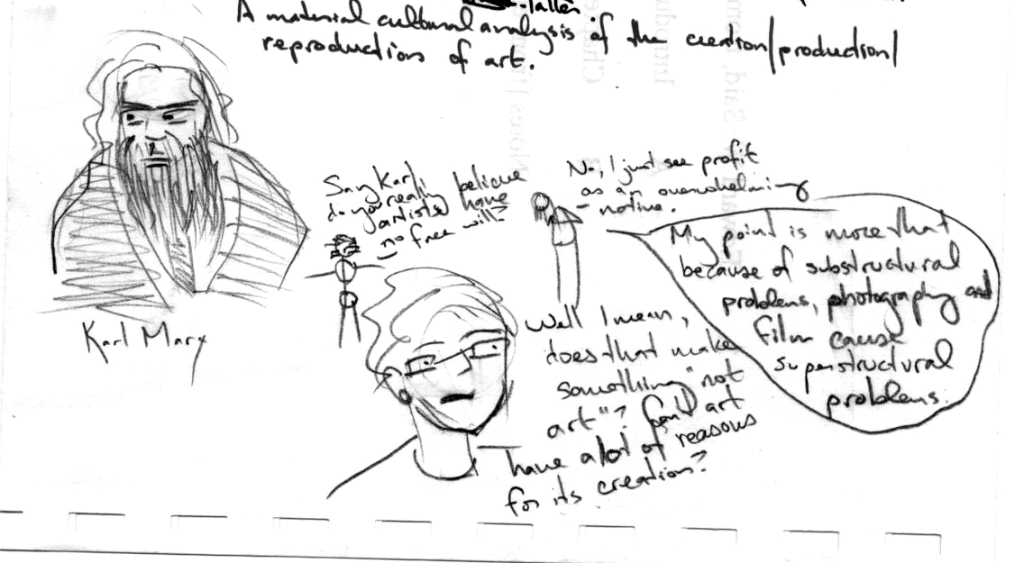My friend Tiffany requested a comic about my 50k experiences. This is more or less accurate.
This is the thing about exercise: It doesn’t exactly get less painful as you do more of it. Well, on a practical level, the delayed-onset muscle soreness (DOMS) can get a bit less, but whatever you’re doing–running, lifting weights, swimming–it will still feel hard. Today I was at the gym and I squatted 125 lbs for reps, which is the most I’ve ever done. I’m nearly at my goal of squatting my body weight. (Ironically, before I got serious about lifting and put on 5 lbs of muscle in my back/shoulders, that was my weight.) And the thing is, it feels really hard to do that. About as hard as it felt when I was just starting to do squats and using just the bar (45 lbs). But now I can do the higher weight and not get broken in half. Running is similar. My feet still hurt like they did when I did my first marathon (or first 5k, I think). But I go farther.
The Mad City 50k, which is the race depicted here, is always a good time. A lot of friends of mine are on the committee that puts it together, but even before I’d met them I’d done the race and learned what a great event it is. And it’s nice to feel like I know a large number of the people I’m running next to and the volunteers who are hanging out.
The race consists of five 10k loops of the Arboritum. My plan was to do the first three loops at a consistent but conservative pace, then try to pick it up for the last two. Instead, I went at a good clip, finishing in just about one hour (9:45 pace) for the first 10k, then 58:27 and 58:39 (9:24 and 9:26 pace) for the next two laps. I kept falling in with the lead woman runner and her pacers, who were at times clocking close to an 8:30 pace. Whoops.
I knew the fourth lap would be the toughest, mentally speaking. This was also when my stomach decided to act up and I started getting all kinds of cramps. Eventually I stopped to use the restroom, which helped a bit but slowed me down some. Eating some potato chips also helped–maybe I needed some salt? I finished the fourth lap in 1:09:42, an 11:13 pace. Ouch.
The talking backward thing, by the way, has its origins here. I think I listened to this song a day or two before the race. SO there you go.
The last lap I tried to push the pace, but my legs were pretty dead. I was talking to random strangers and to myself, anything to make the miles go by faster. Unlike the last time I did the race, I didn’t meet anyone going my way at my pace. That was unfortunate. I really pushed it over the last mile and a half, passing a bunch of people…most of whom were doing the relay, but a couple of whom were in the 50k. I finished the last lap in 1:02:18 (10:01 pace) to complete the race in 5:09:44, good enough for 5th place among women and (I think) 2nd in my age group.
We’ll file this under GV1065.17.U4 L86 2013 for Recreation. Leisure—Sports—Track and field athletics—Foot racing. Running—Distance running—Marathon running—Special topics, A-Z—Ultramarathons.





